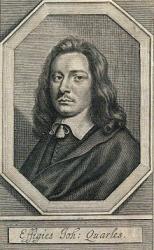Planning worship?
Check out our sister site, ZeteoSearch.org,
for 20+ additional resources related to your search.
- |
User Links
Person Results
Ralph Vaughan Williams

1872 - 1958 Arranger of "KINGSFOLD" in The Cyber Hymnal Through his composing, conducting, collecting, editing, and teaching, Ralph Vaughan Williams (b. Down Ampney, Gloucestershire, England, October 12, 1872; d. Westminster, London, England, August 26, 1958) became the chief figure in the realm of English music and church music in the first half of the twentieth century. His education included instruction at the Royal College of Music in London and Trinity College, Cambridge, as well as additional studies in Berlin and Paris. During World War I he served in the army medical corps in France. Vaughan Williams taught music at the Royal College of Music (1920-1940), conducted the Bach Choir in London (1920-1927), and directed the Leith Hill Music Festival in Dorking (1905-1953). A major influence in his life was the English folk song. A knowledgeable collector of folk songs, he was also a member of the Folksong Society and a supporter of the English Folk Dance Society. Vaughan Williams wrote various articles and books, including National Music (1935), and composed numerous arrangements of folk songs; many of his compositions show the impact of folk rhythms and melodic modes. His original compositions cover nearly all musical genres, from orchestral symphonies and concertos to choral works, from songs to operas, and from chamber music to music for films. Vaughan Williams's church music includes anthems; choral-orchestral works, such as Magnificat (1932), Dona Nobis Pacem (1936), and Hodie (1953); and hymn tune settings for organ. But most important to the history of hymnody, he was music editor of the most influential British hymnal at the beginning of the twentieth century, The English Hymnal (1906), and coeditor (with Martin Shaw) of Songs of Praise (1925, 1931) and the Oxford Book of Carols (1928).
Bert Polman
Ralph Vaughan Williams
John Quarles

1624 - 1665 Person Name: John Quarles, 1624-1665 Author of "For Zion's Sake I Will Not Rest" in The Cyber Hymnal Quarles, John, son of Francis Quarles, was born in Essex in 1624, and was educated at Exeter College, Oxford. He bore arms within the garrison at Oxford on behalf of Charles I. and subsequently (it is said) he was raised to the rank of captain in the King's service. On the downfall of the King, Quarles retired to London, and devoted himself to literature for a livelihood. He died there during the great Plague, 1665. He published several works including (1) Jeremiah's Lamentations Paraphrased, with Divine Meditations, 1648; and (2) Divine Meditations upon Several Subjects whereunto is annexed God's Love to Man’s Unworthiness, with several Divine Ejaculations. London, 1655 (Wood's Athenae Oxon.). From the Ejaculation, Mr. Darling adapted two hymns for his Hymns for the Church of England. In the 1889 ed. these are:— “O King of kings, before Whose Throne" (Holy Trinity); and "O Thou Who sitt'st in heaven and seest" (Visitation of Sick).
--John Julian, Dictionary of Hymnology (1907)
John Quarles


 My Starred Hymns
My Starred Hymns


